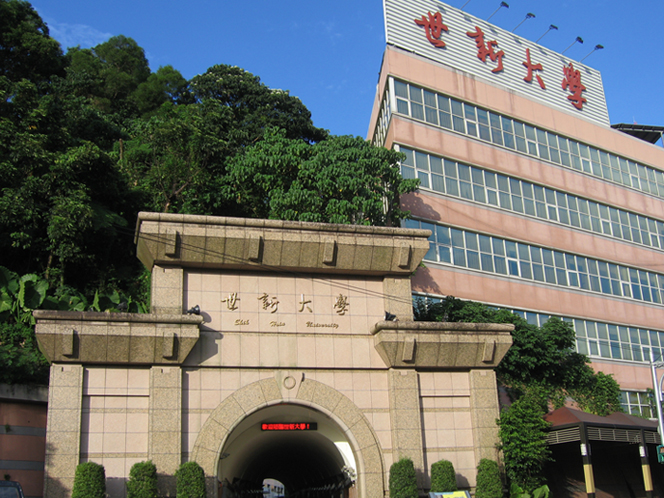

Overview
Established in 1956. Upgraded in 1991. Renamed in 1997.
Shih Hsin University offers a wide range of undergraduate and graduate degree programs in its day school and night school. In order to meet the demand of adults who yearn to enrich their knowledge or continue their educations, the university provides multiple continuing education programs leading to bachelor's, master's, and doctoral degrees. In addition, the university also offers a special undergraduate program for graduates of three-year vocational colleges.
An overview of the University's colleges and departments:
1. College of Journalism and Communications
Ph.D. Program of Communications; Department of Journalism (including master's program); Department of Radio, Television and Film (radio track, television track, and film track; including master's program); Department of Public Relations and Advertising (including master's program); Department of Graphic Communications and Publishing (including master's program); Department of Speech Communications (including master's program); Department of Information and Communications (including master's program); Department of Digital Multimedia Arts; Department of Communications Management (including master's program).
2. College of Management
Department of Information Management (including master's program); Department of Tourism (hospitality management program , travel and recreation planning program ; including master's program); Department of Economics (including master's program); Department of Finance (including master's program); Department of Public Policy and Management (including doctoral and master's programs); Department of Business Administration (including master's program).
3. College of Humanities and Social Sciences
Graduate Institute for Social Transformation Studies (master's program); Graduate Institute for Gender Studies (master's program); Department of Social Psychology (including master's program); Department of English (including master's program); Department of Chinese Literature (including master's program); Department of Japanese Language and Literature.
4. School of Law
Graduate Institute for Intellectual Property Rights Program; Department of Law (including master's program).
In order to cultivate students with a broad worldview and up-to-date skills, the University is working hard to develop cooperative arrangements and exchanges programs with international academic and research institutions. It has already established partnership agreements with more than one hundred academic institutions in Europe, the United States, Japan, Korea, Southeast Asia, and China. In addition, academic cooperation and student exchanges with these institutions are ongoing. The wide variety of exciting extracurricular activities that Shih Hsin students throw themselves into is another distinctive feature of the University. Besides seventeen departmental associations, the University also has lots of extracurricular student organizations such as academic, service-oriented, recreational, and social groups - a total of more than ninety-- to suit students’ interests. To encourage and help students to pursue their education, the University provides students with lots of academic and need-based scholarships.
▩ Academic scholarships
Students can apply for a range of nearly two hundred types of grants and scholarships, including those provided by the University itself such as a scholarship offered to the top scorer on the entrance examination, overseas summer study scholarships, the She-Wo Scholarships honoring the University's founder (awarded to the students with the four top academic records in each class) - as well as those offered by individuals, private organizations and public institutions, for sums ranging from NT$3,000 to NT$150,000.
▩ Financial Assistance
In accordance with regulations set forth by the Ministry of Education, the University offers financial assistance for students who need such support. The amount of this assistance covers tuition, textbook purchases, training (lab) fees, pension funds, insurance, dormitory rental, and miscellaneous expenses.
▩ Scholarships:
- (1) Scholarships for financially constrained students (offering educational grants to students from low-income families).
- (2) Emergency grants (aiding families experiencing sudden, unforeseen financial difficulties).